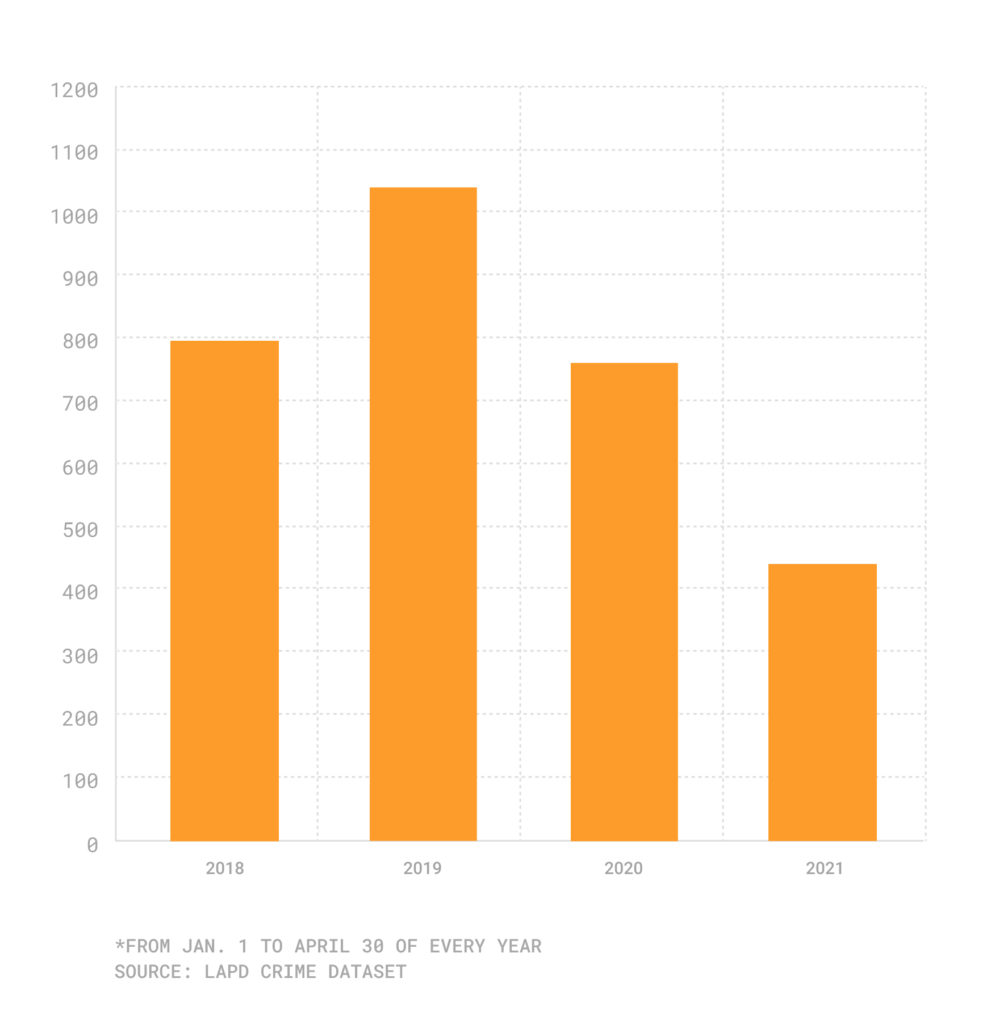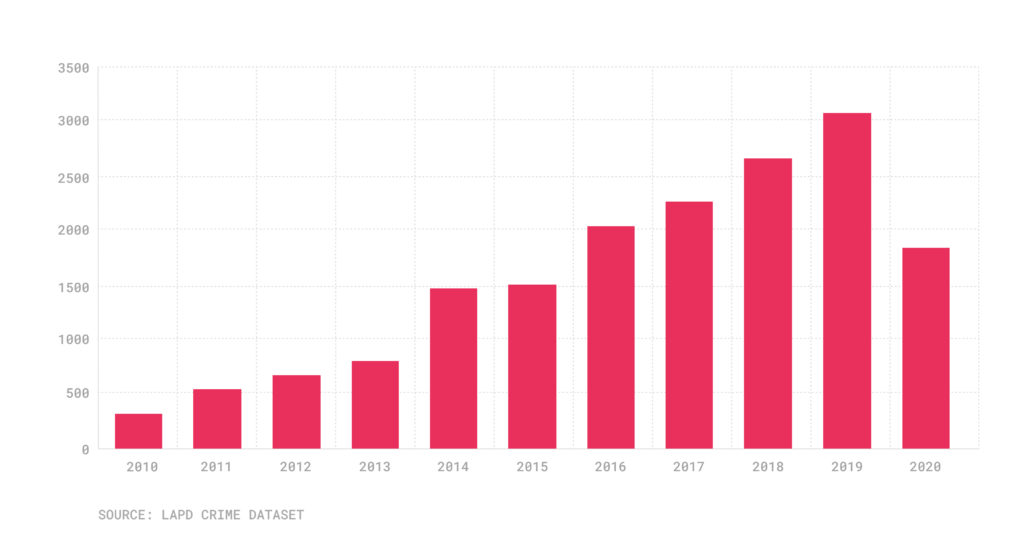Street scams decline, but the con goes on

During the pandemic, with people frequently staying home, many categories of crime in Los Angeles decreased (homicides and shootings were notable exceptions). That includes street schemes and con games, which have fallen dramatically in the early part of 2021.
From Jan. 1-April 30, there were 441 reports of “bunco” crimes, a 38% drop from the 761 reported in the same time period in 2020, according to Los Angeles Police Department data. The current figure is the lowest level in six years.
Bunco crimes in Los Angeles, Jan. 1-April 30, 2018-2021

In police parlance, bunco refers to crimes that use some type of trickery to persuade a victim to hand over money or other merchandise. The LAPD reports generally refer to various con games or street schemes, as opposed to other forms of robbery, burglary or fraud.
The recent drop marks a reversal from pre-pandemic life, as bunco cases in the city Los Angeles had risen steadily over the last decade, from 324 reports in 2019 to 3,065 in 2019. Figures increased every year until 2020.
Annual bunco crimes in Los Angeles, 2010-2020

The majority of bunco cases reported to the LAPD occurred at a victim’s residence. In the past year, Hollywood was the most frequent Los Angeles neighborhood for bunco scams, with 100 cases reported. The second-highest number of incidents occurred in Downtown, where there were 80 crimes.
More than 100 cons
The National Bureau of Bunco Investigators identifies more than 100 con games or scams devised to trick people into handing over money or valuables. From romance to moving scams, criminals devise believable stories to make transactions seem legitimate. Oftentimes they persuade victims to pay in advance for goods that never materialize.
[Get COVID-19, crime and other stats about where you live with the Crosstown Neighborhood Newsletter]
In the period from Jan. 1, 2020-April 30, 2021, bunco operators in Los Angeles managed to take 912 people’s money or valuables without using weapons or other means of persuasion.
In numerous cases suspects impersonated someone else to gain trust. On Jan. 19 of this year, a scammer pretended to be an online renter as a ruse to gain access to a victim’s property in the community of Vermont Vista, where unspecified items were taken. In University Park on March 9, a student was persuaded to wire-transfer an unspecified amount of money to someone pulling a scam.
An annual decrease in local bunco cases does not mean criminals were any less active during the time of the coronavirus. Throughout the pandemic at least $10.4 billion in California unemployment funds were paid out to scammers by the Employment Development Office.
According to the Federal Trade Commission, vulnerable populations, such as senior citizens or people with disabilities, are often the targets for scam operations. According to the FBI, seniors may not report fraud out of shame or fear that their relatives could lose trust in their financial management capabilities. As a result, some law enforcement agencies believe that the number of older people who fall prey to scams could be much higher than the figures reported.
How We Did It: We examined LAPD data on crimes from 2010-April 30, 2021 in the city of Los Angeles. We rely on the data LAPD makes publicly available for our calculations. This data reflects crimes that are reported to the department, not how many crimes actually occur.
The LAPD periodically updates past crime reports with new information, leading the department to recategorize past reports. Additionally, revised reports do not always automatically become part of the public database.
Interested in our reporting or our data? Email us at askus@xtown.la.






